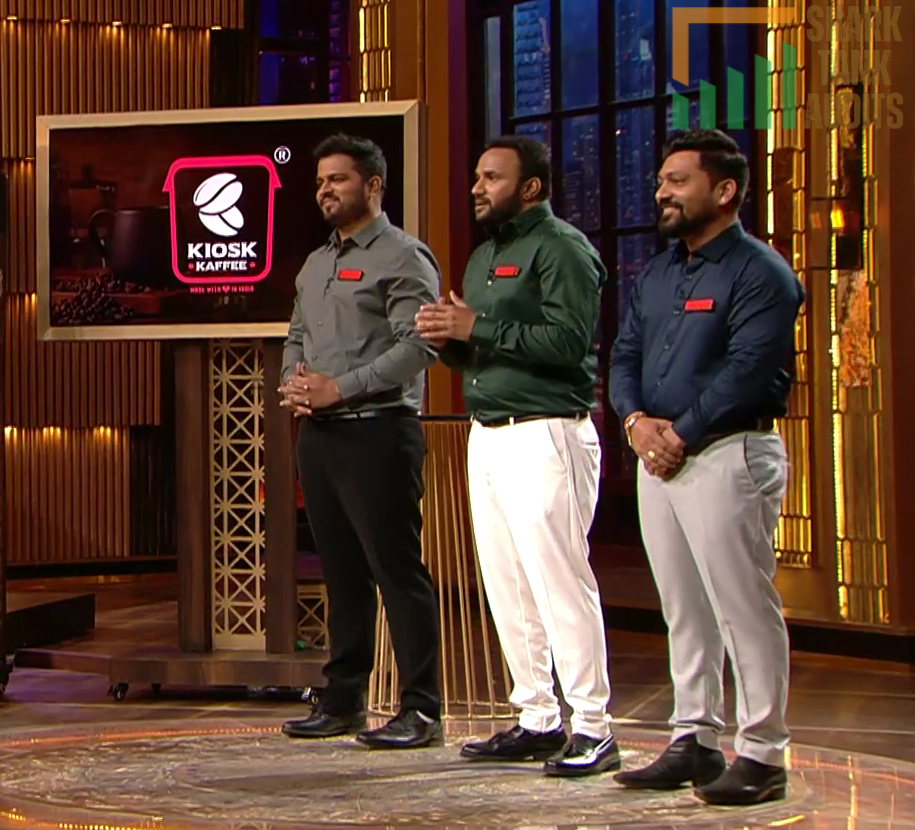Bombay Closet Cleanse Shark Tank India Episode Review
Website Information:
- Website:- Bombay Closet Cleanse
- Build on E-commerce Shopify
- Boost with SEO
- ORGANIC TRAFFIC:- 37,952 organic visitors per month
Founders:-
- Aalfiya Khan and Sana Khan are the founders of Bombay Closet Cleanse.

About The Company and The Product:-
- Bombay Closet Cleanse is introduced as a thrift store with a social impact, aiming to provide affordable clothing while positively impacting society.
- The Bombay Closet Cleanse founders emphasize their mission to promote sustainability and empower communities through their business model.
- Bombay Closet Cleanse allows individuals to buy and sell pre-loved clothing items.
- Doing so addresses environmental and social issues, offering a sustainable and impactful alternative to fast fashion.
Presentation on Shark Tank India:
- The latest episode of Shark Tank India season 3 features two sisters, Aalfiya Khan and Sana Khan, founders of Bombay Closet Cleanse.
- They present their pitch in a quirky and engaging manner, explaining the concept of thrifting pre-owned clothes.
Unique Selling Points:
- Bombay Closet Cleanse operates on a shop, swap, and sell model, being the only brand in India where customers can receive payment for their old clothes.
- The brand has served over 5000 customers and currently operates two offline stores in Mumbai and an online presence through its website.
Investment Ask:
- The founders seek Rs 1 crore for a 2.5 percent equity stake in their business.
- The sharks commend the sisters for their entertaining and informative pitch.
Shark Tank India Air Date:
- Season 3, Episode 49, 28 March 2024
Shark’s Interaction and Feedback:
- Vineeta Singh questions Aalfiya about her accent, which leads to a humorous exchange about her unique Hindi accent.
- Anupam Mittal suggests that Sana could model for Vineeta’s brand Quench, complimenting her youthful appearance.
Growth and Operations:
- The sisters started their business using their clothes and saw significant growth in 2020 through Instagram.
- They explain their slot booking system for reselling clothes in stores, where the condition, brand, and style of clothes determine the pricing.
- Customers can provide 10-100 units of clothes per slot.
Sharks’ Decisions:
- Aman Gupta backs out of the deal, citing concerns about maintaining quality.
- Azhar Iqubal and Peyush Bansal also exit the deal, with Peyush advising the founders not to reduce their aspirations.
- Anupam Mittal and Vineeta Singh also decide not to invest.

Bombay Closet Cleanse Shark Tank India Review Website Data
| Category | Details |
|---|---|
| Website Information | |
| Website | Bombay Closet Cleanse |
| Platform | E-commerce Shopify |
| SEO | Improved |
| Organic Traffic | 37,952 organic visitors per month |
| Founders and Company | |
| Founders | Aalfiya Khan and Sana Khan |
| Company | Bombay Closet Cleanse |
| Model | Thrift store with a social impact focus |
| USP | Shop, swap, and sell pre-owned clothing with payment for old clothes |
| Impact | 5000+ customers, 2 offline stores in Mumbai |
| Business Potential in India | |
| Growing Thrifting Market | Increasing awareness of sustainability and affordability |
| E-commerce Growth | Expanding online retail market |
| Urbanization | Rising disposable income and changing consumer preferences |
| Total Addressable Market (TAM) | |
| Market Size | Challenging to quantify due to the nascent nature of the organized thrifting market |
| Market Penetration | Assuming a conservative estimate of 1% of the urban population as potential customers, the TAM could be substantial |
| Ideal Target Audience and Demographics | |
| Fashion-Conscious Individuals | Primarily young adults and millennials |
| Location | Urban areas with higher disposable income |
| Lifestyle | Environmentally conscious, budget-friendly, and fashion-forward |
| Marketing Strategy | |
| Content Marketing | Focus on sustainability, affordability, and unique fashion finds |
| Digital Marketing | SEO, social media (Instagram, Facebook, YouTube), and targeted online advertising |
| Influencer Partnerships | Collaborate with fashion and lifestyle influencers |
| Public Relations | Media coverage and partnerships with fashion and lifestyle publications |
| Experiential Marketing | Pop-up thrift shops and fashion events |
| Distribution Strategy | |
| Offline Stores | Physical stores for browsing and trying clothes |
| E-commerce | Online platform for wider reach and convenience |
| Consignment Model | Partnership with individuals and boutiques for curated collections |
| Wholesale | Supplying pre-owned clothing to other retailers |
| Advantages | |
| Unique Business Model | Combines thrifting with a social impact focus |
| Potential for Scalability | Opportunity to expand to new cities and online |
| Social Impact | Promoting sustainability and circular fashion |
| Customer Loyalty | Building a community of loyal thrift shoppers |
| Challenges | |
| Quality Control | Ensuring consistent quality of pre-owned clothing |
| Logistics and Inventory Management | Efficiently managing the flow of clothes |
| Competition | Existing thrift stores and online marketplaces |
| Consumer Perception | Overcoming negative perceptions about second-hand clothing |
| Reasons for Success | |
| Addresses a Consumer Need | Fills a gap in the market for affordable and sustainable fashion |
| Potential for Community Building | Creating a community of thrift enthusiasts |
| Environmental Impact | Positive contribution to sustainability |
| Mitigation Strategies | |
| Quality Assurance | Implementing quality control measures and inspection processes |
| Technology | Leveraging technology for inventory management and customer experience |
| Partnerships | Collaborating with designers and brands for exclusive collections |
| Education and Awareness | Creating awareness about the benefits of thrifting |
| Future Business Roadmap | |
| Geographical Expansion | Expanding to other cities and regions |
| Product Expansion | Offering additional services like clothing alterations, styling, and rentals |
| International Expansion | Exploring opportunities in international markets |
| Sustainability Initiatives | Strengthening commitment to sustainability through partnerships and certifications |
| Additional Insights | |
| Data Analytics | Utilizing data to understand customer preferences and purchasing behavior |
| Customer Loyalty Programs | Implementing rewards and loyalty programs to retain customers |
| Brand Partnerships | Collaborating with fashion brands for collaborations and promotions |
Bombay Closet Cleanse: Thrifting with a Purpose

Business Potential in India:
- Growing Thrifting Market: Increasing awareness of sustainability and affordability
- E-commerce Growth: Expanding online retail market
- Urbanization: Rising disposable income and changing consumer preferences
Total Addressable Market (TAM):
- Challenging to quantify due to the nascent nature of the organized thrifting market
- Considering India’s population, growing middle class, and increasing environmental consciousness, the TAM could be substantial
- Assuming a conservative estimate of 1% of the urban population as potential customers and average revenue per transaction, the TAM could be in the range of several crores
Ideal Target Audience and Demographics:
- Fashion-conscious individuals: Primarily young adults and millennials
- Location: Urban areas with a higher disposable income
- Lifestyle: Environmentally conscious, budget-friendly, and fashion-forward
Marketing Strategy:
- Content Marketing: Focus on sustainability, affordability, and unique fashion finds
- Digital Marketing: SEO, social media (Instagram, Facebook, YouTube), and targeted online advertising
- Influencer Partnerships: Collaborate with fashion and lifestyle influencers
- Public Relations: Media coverage and partnerships with fashion and lifestyle publications
- Experiential Marketing: Pop-up thrift shops and fashion events
Distribution Strategy:
- Offline Stores: Physical stores for browsing and trying clothes
- E-commerce: Online platform for wider reach and convenience
- Consignment Model: Partnership with individuals and boutiques for curated collections
- Wholesale: Supplying pre-owned clothing to other retailers
Advantages:
- Unique Business Model: Combines thrifting with a social impact focus
- Potential for Scalability: Opportunity to expand to new cities and online
- Social Impact: Promoting sustainability and circular fashion
- Customer Loyalty: Building a community of loyal thrift shoppers
Challenges:
- Quality Control: Ensuring consistent quality of pre-owned clothing
- Logistics and Inventory Management: Efficiently managing the flow of clothes
- Competition: Existing thrift stores and online marketplaces
- Consumer Perception: Overcoming negative perceptions about second-hand clothing
Reasons for Success:
- Addresses a Consumer Need: Fills a gap in the market for affordable and sustainable fashion
- Potential for Community Building: Creating a community of thrift enthusiasts
- Environmental Impact: Positive contribution to sustainability
Mitigation Strategies:
- Quality Assurance: Implementing quality control measures and inspection processes
- Technology: Leveraging technology for inventory management and customer experience
- Partnerships: Collaborating with designers and brands for exclusive collections
- Education and Awareness: Creating awareness about the benefits of thrifting
Future Business Roadmap:
- Geographical Expansion: Expanding to other cities and regions
- Product Expansion: Offering additional services like clothing alterations, styling, and rentals
- International Expansion: Exploring opportunities in international markets
- Sustainability Initiatives: Strengthening commitment to sustainability through partnerships and certifications
Additional Insights:
- Data Analytics: Utilizing data to understand customer preferences and purchasing behavior
- Customer Loyalty Programs: Implementing rewards and loyalty programs to retain customers
- Brand Partnerships: Collaborating with fashion brands for collaborations and promotions
Note: This Bombay Closet Cleanse analysis is based on available information and assumptions. A comprehensive business plan would require in-depth market research and financial modeling.
Conclusion:
- Despite not securing a deal, the founders of Bombay Closet Cleanse receive valuable feedback and recognition for their innovative and impactful business model.



Bombay Closet Cleanse Shark Tank India Episode Review